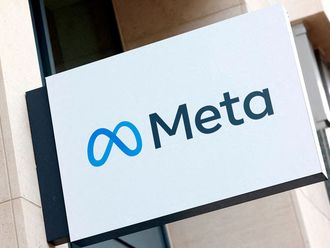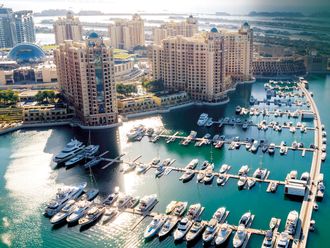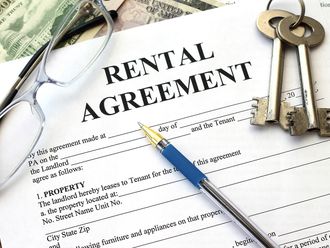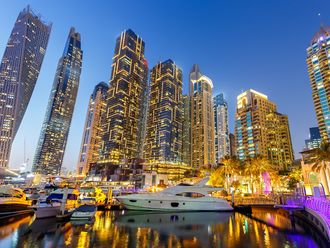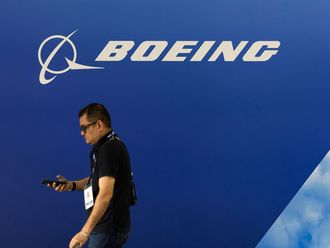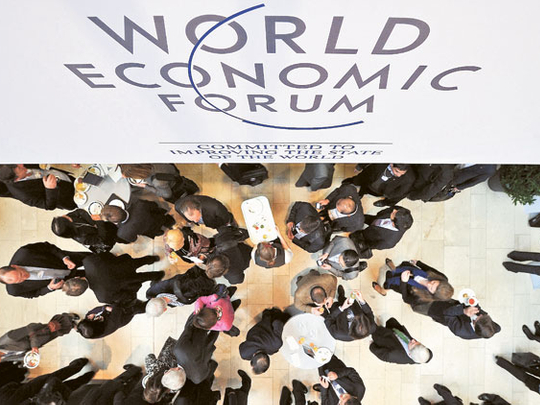
Davos: Davos Man is approaching his annual Alpine get-together with humility after spending the past year getting fired, arrested, belittled and occupied.
When the World Economic Forum's conference gets under way in the Swiss ski resort today several past stars will be missing from the swirl of policy debates and parties.
News Corp. Chairman Rupert Murdoch is embroiled in a phone hacking scandal. Oswald Gruebel quit as chief executive officer of UBS AG after a $2.3 billion (Dh8.44 billion) loss from unauthorised trading. Philipp Hildebrand left the Swiss National Bank in a furor over his wife's currency transactions. Dominique Strauss-Kahn resigned as International Monetary Fund Managing Director after sexual-assault charges, later dropped, were filed against him.
As "OccupyWEF" protesters build igloos under the eye of Swiss security forces, the leaders of this year's Davos may try to profit from the mistakes of their predecessors by embracing transparency and ethics. Citigroup CEO Vikram Pandit, a co-chairman of the meeting, is calling for the financial industry to be more open amid panel discussions with such titles as "Is 20th-century capitalism failing 21st-century society?"
"Davos Man has taken on the lessons of recent years and is asking how to do things differently," said Richard Edelman, president and chief executive officer of public relations agency Edelman, who is attending the conference. Businesses and policymakers are having to "process accurately the vox populi".
The need for them to do so is demonstrated by Edelman's annual poll on trust, released on Monday in conjunction with the Davos meeting. Trust in government fell a record nine percentage points to 43 per cent, while faith in business slid to 53 per cent from 56 per cent.
Credibility of CEOs
The credibility of CEOs slid 12 points to 38 per cent, the largest drop in nine years, and banks and financial services remained the two least trusted industries. The online survey questioned a total of 30,600 people in at least 25 countries from October 10 to November 30 last year.
"Davos Man is not this caricature of the rich and powerful person," Klaus Schwab, founder of the forum, said in a Bloomberg Television interview on Monday. "Davos Man is a person who, as I define it, should be concerned with the present state of the world and who should be ready to engage and contribute so that the state of the world is improved."
The term "Davos Man" was created by the late Samuel Huntington, a professor at Harvard University in Cambridge, Massachusetts, to describe those who have international visions and view the only use of governments as easing "the elite's global operations".
The 42nd annual meeting of the World Economic Forum embodies the "one per cent," to use the phrase popularised by the young protesters who spent more than eight weeks occupying New York's Zuccotti Park last year.
Among scheduled attendees are bank CEOs such as Pandit and Jamie Dimon of JPMorgan Chase and corporate chiefs Peter Voser of Royal Dutch Shell and Cisco Systems' John Chambers. At least 70 billionaires are to be present, including investor George Soros and Microsoft Corp. founder Bill Gates. They will join about 2,600 other delegates discussing the world outlook by day and touring hotel bars at night.
The image of financial, corporate and governmental powers has taken a hit as the "occupy" protests, the Arab Spring uprisings and recent marches in Moscow highlighted rising unemployment and income inequality, said Tina Fordham, senior global political analyst at Citigroup and a member of the forum's Global Agenda Council. It helps shape the forum's work.
There is "a reduced willingness to tolerate the perceived excess of elites and the old social order, and heightened potential for protests to cause disruption, violence and pressure to alter the legislative agenda," she said.



